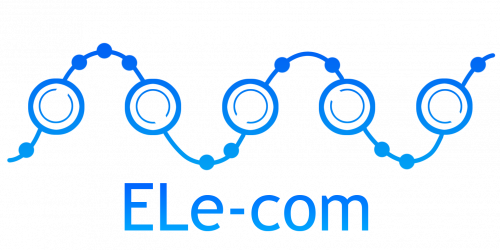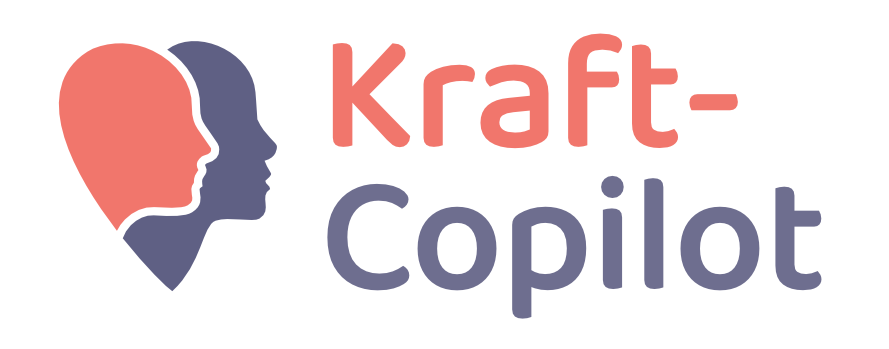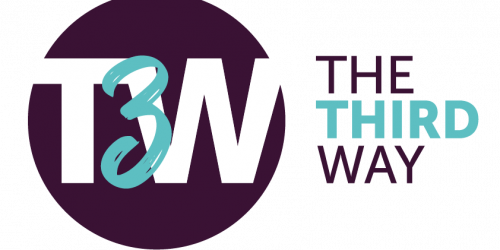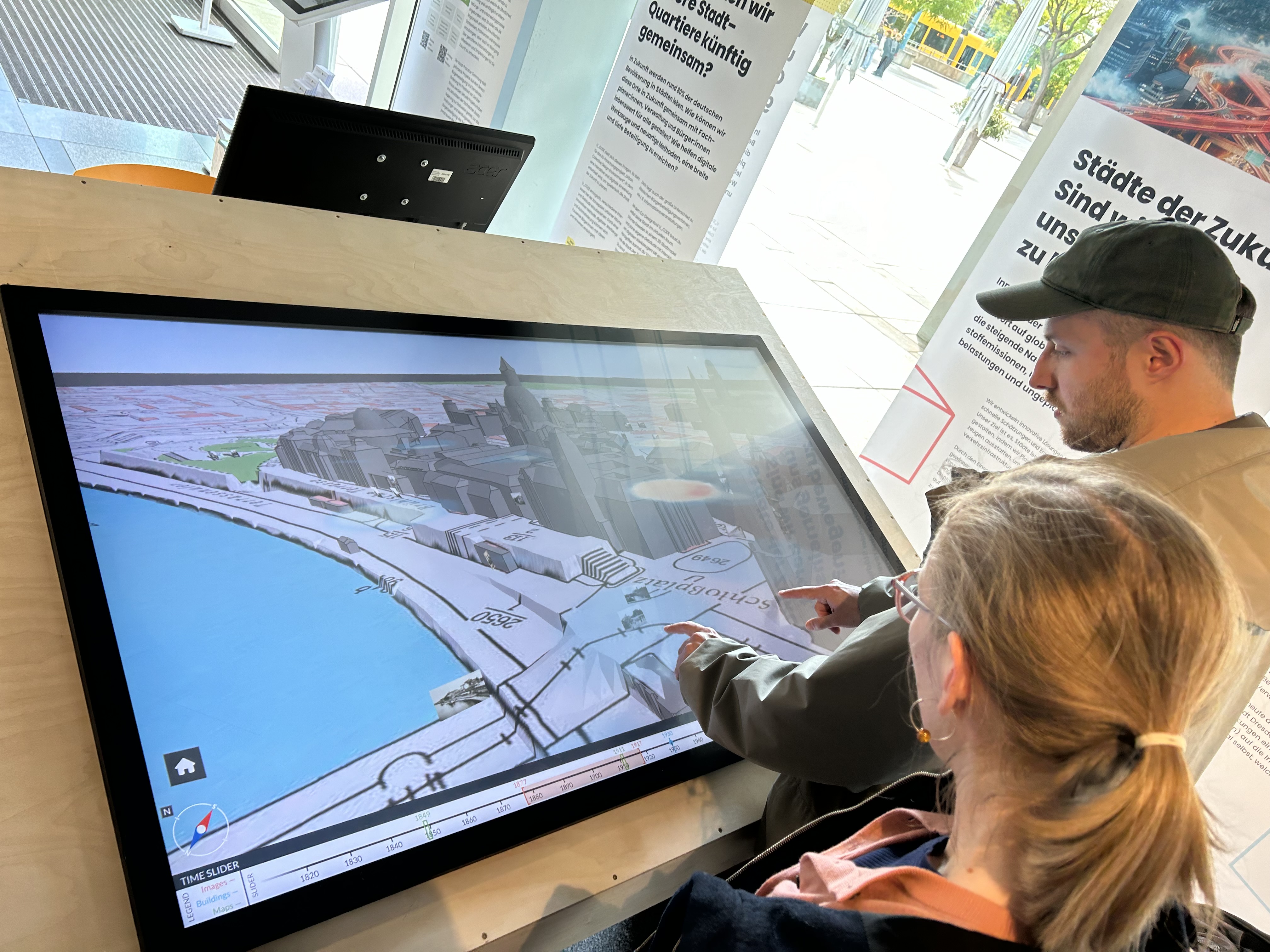Meetings in virtual space: Review of the GeNeMe pre-conference
This year, the participants of the Annual Conference of Communities in New Media (GeNeMe) about a real novelty: The pre-conference on September 13, 2023 was held for the first time as a “didactic double-decker”. Under the title “Building bridges or creating barriers? Participation and exclusion through virtual reality in education and society” The application of virtual reality in the context of inclusion was particularly addressed and discussed in many ways – in a social virtual reality environment. The immersive software “TriCAT Spaces Congress“ as a virtual conference venue for the approximately 110 participants. Although it was a purely online conference, the participants were able to move around freely and experience a sense of community in one place that is much closer to an in-person event than pure video conferences.
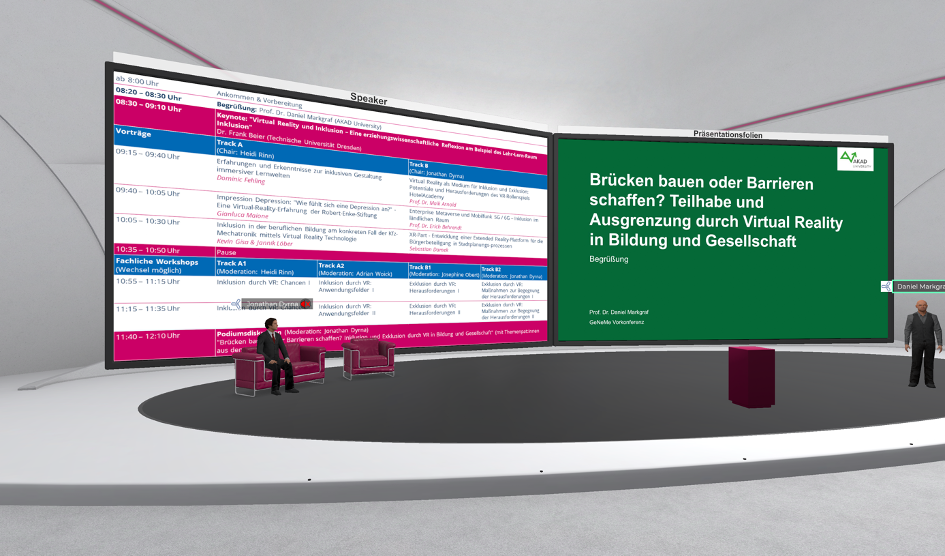
The pre-conference consisted of a thematically focused morning program and a diverse afternoon program. The morning was devoted to the questions of how virtual reality technologies can help to increase inclusion and participation in education and society and which aspects must be considered so that no one is left behind in the virtual world or even completely excluded from it. To this end, numerous experts from the research and practice of virtual reality designed an exciting program, which was presented by the project manager of the organizing and implementing project. “Connecting a Virtual Immersive 3D Learning Platform to the NBP using the domain example of an educational provider (AVILAB2)”, Mr Prof. Dr. Daniel Markgraf by AKAD University (see Figure 1). This was followed by a thematically introductory keynote speech entitled “Virtual Reality and Inclusion – An educational reflection using the example of the teaching-learning space inclusion by Mr. Dr. Frank Beier (Technical University of Dresden). The participants then split from the virtual plenary hall into two parallel tracks. In Track A, Dominic Fehling (Bergische Universität Wuppertal) shared his “experiences and insights into the inclusive design of immersive learning environments”. Afterwards, Mr. Gianluca Maione from the Robert Enke Foundation demonstrated exciting insights into a current and socially particularly valuable VR project (see Figure 2). Mr. Kevin Giesa and Mr. Jannik Löber (from August Wilhelm Scheer Institute) presented a practical application example in their presentation “Inclusion in vocational training using the specific case of automotive mechatronics using virtual reality technology”.
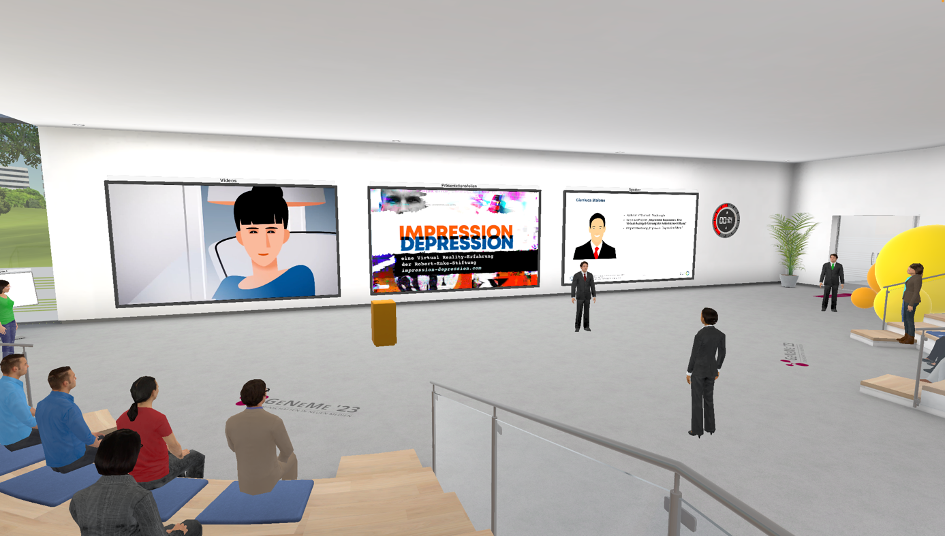 Figure 2: Mr. Gianluca Maione presents the current VR project “Impression Depression: ‘What does depression feel like?'” of the Robert Enke Foundation
Figure 2: Mr. Gianluca Maione presents the current VR project “Impression Depression: ‘What does depression feel like?'” of the Robert Enke Foundation
The application context was also in the foreground in the parallel Track B. Here, Mr. Prof. Dr. Maik Arnold (University of Applied Sciences Dresden) on “Virtual Reality as a medium for inclusion and exclusion: potentials and challenges of the VR role-playing game HotelAcademy”. Following on from this, Prof. Dr. Erich Behrendt (Society for Education and Career e. V.) impressively demonstrated how participation in rural areas can work using “Enterprise Metaverse and 5G / 6G mobile communications”. The closing event was given to Mr. Sebastian Damek (Erfurt University of Applied Sciences) with the presentation of the exciting and currently ongoing project “XR-Part – Development of an extended reality platform for citizen participation in urban planning processes„.
After a short break, the participants split up into workshop rooms and had a lively discussion about the opportunities, fields of application and challenges of virtual reality in the context of inclusion. The key results were visualized and shared with the entire plenary in a final plenary discussion.
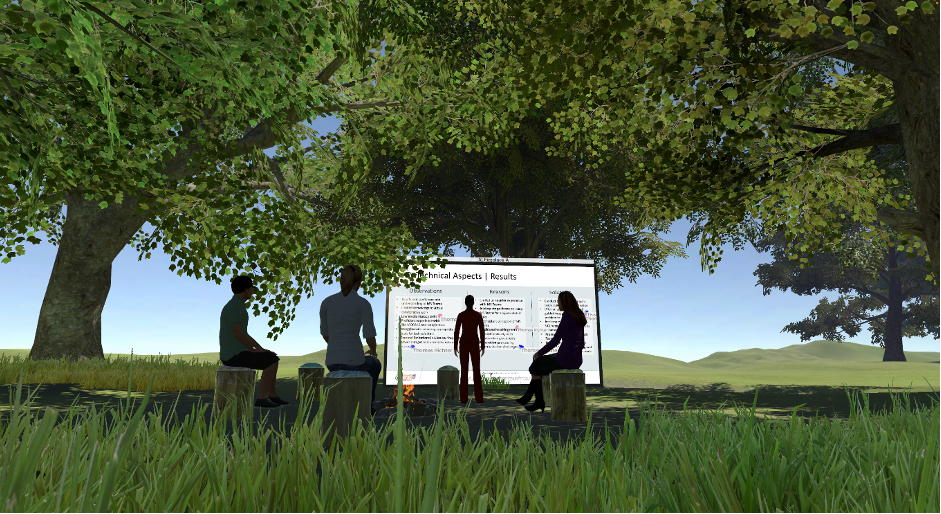
Figure 3: Participants of the community workshop “Ukraine digital: Ensuring Academic Success in Times of Crisis collaborate in a virtual World Café
While the lectures and discussions in the morning were led by German-speaking experts, the virtual environment opened its “doors” to the international audience in the afternoon. Various communities met here to exchange ideas and collaborate on individual topics. In the first workshop, Dr. Nadine Schaarschmidt and Ms. Lydia Stark (CODIP, TU Dresden) under the title “Sustainably placing online training offers on the market! – Lessons learned using the example of Online teacher training 'Teaching with digital media' (UndiMeS)“ Experiences from the development of an online media skills training for teachers and discussed business models for subsequent use with various actors from educational practice. In the workshop “Introduction to AVILAB2/TriCAT Spaces & Mapping of the XR Landscape: Projects at the TUD at a Glance”, the extended reality community of the TU Dresden came together under the direction of Gesine Wegner and Jonathan Dyrna. At the same time, a German-Ukrainian group of scientists under the guidance of the Professorship for Business Informatics, especially Information Management at the TU Dresden a workshop for the project “Ukraine digital: Ensuring Academic Success in Times of Crisis” as a virtual World Café (see Figure 4).
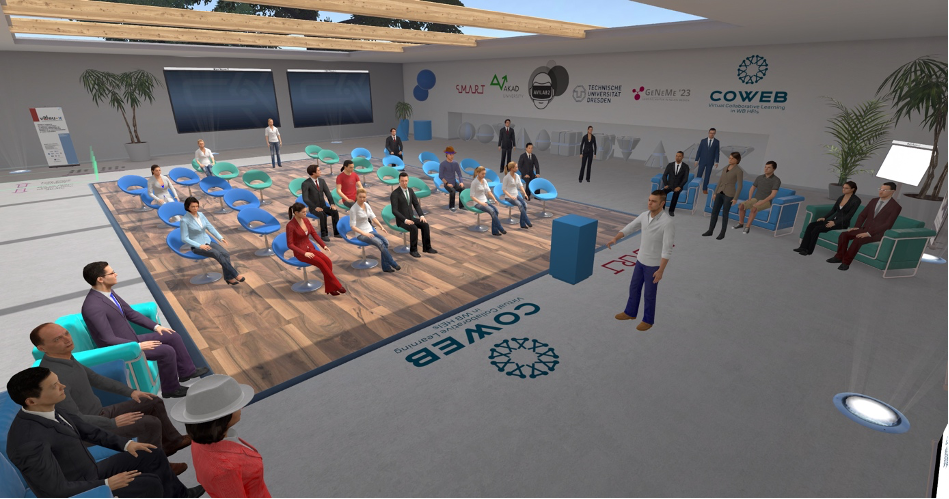
Figure 4: Panel discussion in the community workshop “Augmented Collaboration in Trans European Communities. Joint Project Workshop of COWEB & SMART”
The varied programme was rounded off in the afternoon by the joint workshop “Augmented Collaboration in Trans European Communities” of the research projects “COWEB“ and “SMART” in a Panel discussion Challenges and opportunities for building trans-European higher education communities (see Figure 3). A tabular overview of the entire program and further information on the virtual pre-conference can be found hereOverall, the event enjoyed very active participation and received a lot of positive feedback, also because the functional portfolio of “TriCAT Spaces Congress” was sometimes almost exhausted. Analogous to the Empirical Status Conference in February 2023 The recent event in the “AVILAB2” project was also scientifically accompanied. The results of the accompanying research are currently being evaluated and will be published in the next few months.
Authors: Jonathan Dyrna & Richard Joos
Funding information:



